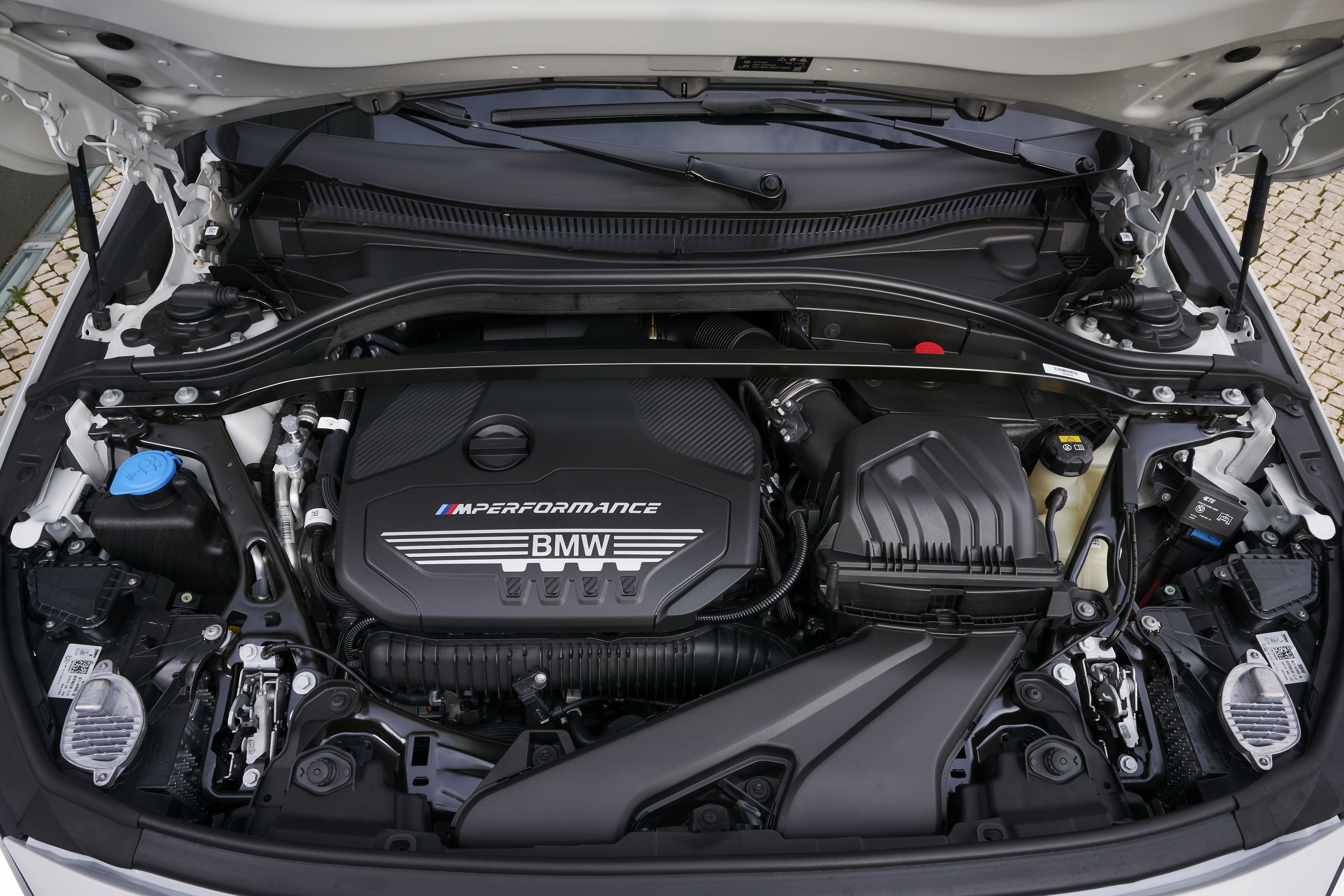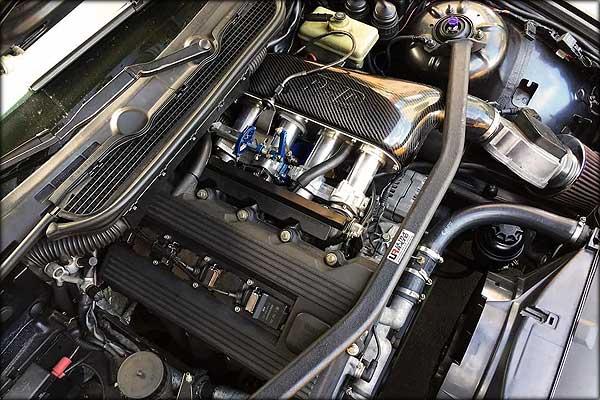The Duty of BMW Engine Design in Getting Exceptional Fuel Efficiency
The Duty of BMW Engine Design in Getting Exceptional Fuel Efficiency
Blog Article
Revealing the Intricacies of Next-Generation Power Units: a Deep Study Advanced Engine Layouts and Advancements
As we stand on the precipice of a brand-new period in transportation, the intricacies of next-generation engine designs beckon us to discover the innovative modern technologies and advancements that assure to redefine the driving experience. Diving much deeper into the worlds of exhaust control, intelligent engine administration systems, and the perspective of power unit development, we find ourselves on the cusp of a transformation that promises to reshape the landscape of movement as we understand it.
Development of Engine Materials

The change in the direction of progressed engine materials has actually additionally enabled designers to make engines with higher power outputs while keeping gas effectiveness standards. The use of lightweight products reduces the total weight of the engine, leading to boosted fuel economic climate and lower discharges. In addition, innovations in products innovation have actually enabled better thermal monitoring within engines, causing raised integrity and longevity.
Turbocharging and Supercharging Technologies
Just How do Turbocharging and Supercharging Technologies reinvent engine performance and effectiveness in modern-day cars? Supercharging and turbocharging are modern technologies that significantly improve engine efficiency by enhancing the quantity of air consumption into the burning chamber. Turbocharging attains this by using a wind turbine driven by exhaust gases to pressurize the intake air, while supercharging utilizes a belt- or chain-driven compressor to attain the exact same impact.
These modern technologies make it possible for smaller, extra fuel-efficient engines to produce power equal to larger ones, known as downsizing. By compeling more air into the cyndrical tubes, supercharging and turbocharging improve combustion effectiveness, resulting in increased horse power and torque result without a considerable increase in engine dimension. This brings about far better velocity, pulling capacity, and total driving efficiency.
Additionally, turbocharging and supercharging add to enhanced gas efficiency by allowing the use of smaller sized engines that eat less fuel under regular driving conditions - bmw engine. This combination of enhanced efficiency and performance has made turbocharging and turbo charging important parts of numerous modern-day engine styles
Emission Control and Environmental Impact
With increasing global problems pertaining to air high quality and ecological sustainability, the application of discharge control technologies in automobiles plays an important function in lowering hazardous toxins released into the ambience. Modern cars are geared up with advanced exhaust control systems that assist minimize the ecological influence of automobile operations. Catalytic converters, for example, are designed to convert toxic gases such as carbon monoxide gas, nitrogen oxides, and hydrocarbons into less dangerous substances like co2 and water vapor.
Additionally, developments in engine innovation, such as the combination of exhaust gas recirculation systems and selective catalytic reduction, have actually considerably added to reducing exhausts. These innovations operate in tandem to optimize burning efficiency and reduce the launch of harmful pollutants right into the air. Additionally, the growth of crossbreed and electric vehicles stands for a critical step in the direction of decreasing the total ecological impact of the transport industry.
Intelligent Engine Management Equipment

In addition, these systems make it possible for lorries to meet rigid discharges standards without jeopardizing performance, offering a more eco pleasant driving experience. The combination of expert system and device learning abilities in engine administration systems remains to press the borders of what is possible, bring about more improvements in effectiveness, integrity, and overall car efficiency. bmw engine. As vehicle technology advances, intelligent engine management systems will certainly play an important function in forming the future of transport in the direction of an extra effective and sustainable instructions
Future Trends in Power Device Development
As intelligent engine administration systems pave the way for boosted control and optimization in modern cars, future fads in power unit advancement are positioned to redefine the landscape of vehicle propulsion innovations. One of the vital trends driving technology in power system development is the change towards electrification. With a boosting emphasis on sustainability and reducing carbon emissions, hybrid and electric powertrains are ending up being a lot more widespread in the auto industry. These alternate power resources supply enhanced efficiency and efficiency while lining up with rigorous ecological guidelines.
One more substantial trend is the assimilation of sophisticated materials and making methods. Lightweight products such as carbon fiber and light weight aluminum are being utilized to minimize overall automobile weight, boosting gas effectiveness and efficiency. Furthermore, advancements in 3D printing and additive manufacturing are enabling the production of complicated engine parts with greater precision and sturdiness.
Additionally, expert system and device understanding are playing an have a peek at these guys essential duty in optimizing power unit performance. These innovations allow for real-time tracking and flexible control, resulting in much more reliable and efficient power delivery. Generally, future trends in power system growth are tailored in the direction of efficiency, performance, and sustainability, driving the vehicle sector towards a brand-new period of propulsion technologies.

Conclusion
In conclusion, the improvements in engine products, turbocharging, exhaust control, and intelligent monitoring systems have led the way for next-generation power devices. These advancements have not just enhanced performance and performance however also lowered environmental effect. As technology proceeds to develop, future patterns in power unit growth are likely to focus on further boosting sustainability and optimizing power output. The detailed designs and advancements in contemporary engines showcase the continuous advancement of automotive innovation.
Checking out the modern improvements in engine materials has been critical in boosting the efficiency and effectiveness of contemporary engines. Over the years, the advancement of engine products has actually played a critical duty in pushing the borders of what engines can attain.The change in the direction of progressed engine materials has likewise made it read review possible for engineers to develop engines with higher power results while keeping gas performance criteria.The application of smart engine administration systems in contemporary lorries has actually transformed the way engines are regulated and optimized for performance and performance. By accumulating data in real-time and assessing it with sophisticated algorithms, smart engine monitoring systems can adapt to driving designs, environmental factors, and engine health and wellness to maximize power outcome while minimizing gas intake and emissions.
Report this page